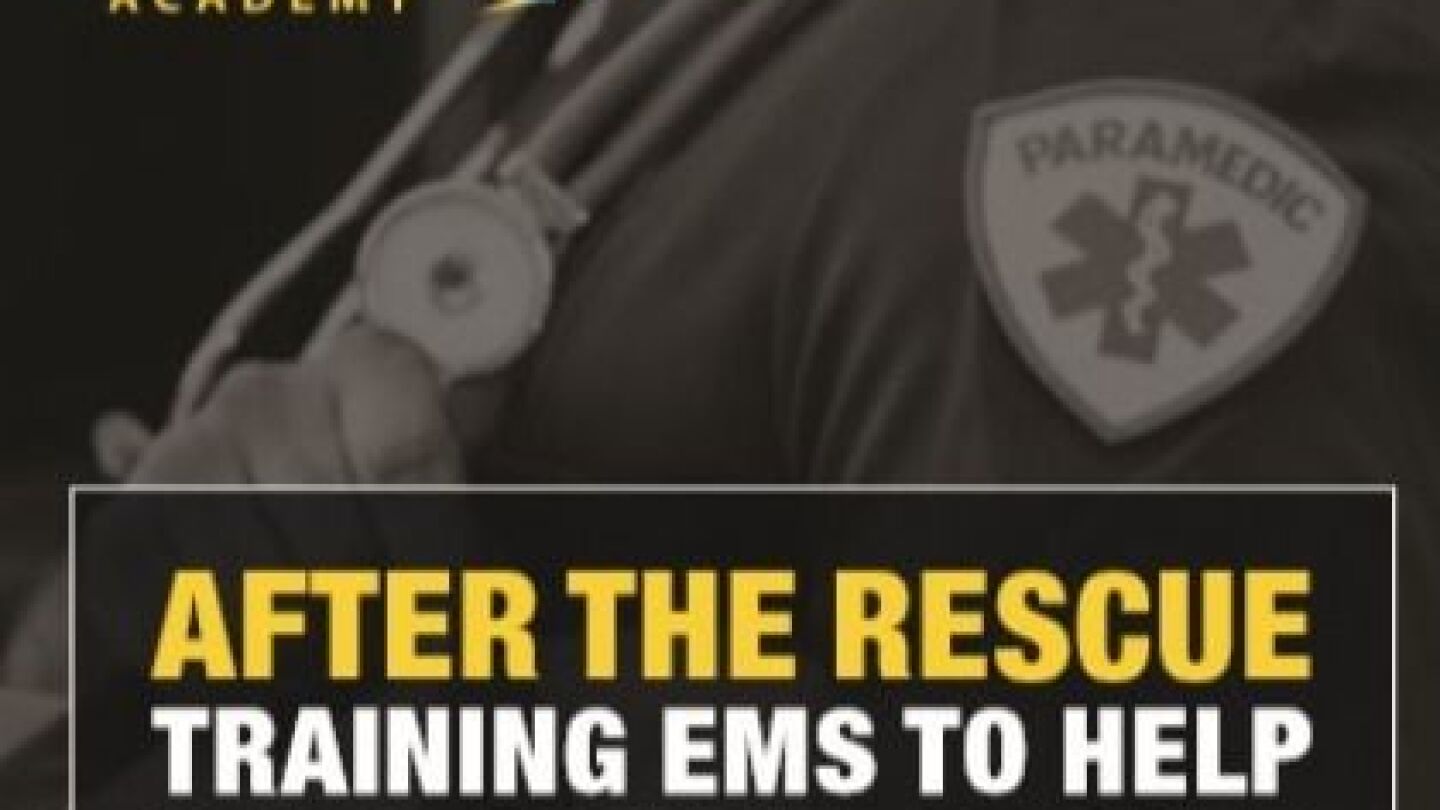Substance Use Disorders
This section provides EMS professionals with resources and training focused on identifying, managing and responding to patients with substance use disorders (SUDs). Articles cover recognition of drug and alcohol use in the field, treatment best practices, harm reduction strategies, and the evolving role of EMS in the opioid crisis. Learn how to address provider safety, compassion fatigue and stigma, while improving patient outcomes through evidence-based care and community partnerships.
One of the key risk factors for alcohol abuse is post-traumatic stress, something many first responders struggle with
Sandwich (MA) Fire Chief John Burke reflects on how properly disposing medical waste has helped safeguard his community against COVID-19, the opioid epidemic and in-house medical care
The Bicycle Emergency Response Team is engaging the community, while providing quick response to difficult-to-access venues
The state has authorized 27 organizations across the state to distribute and administer the medication without a prescription
According to figures provided by Acushnet Fire Chief Kevin Gallagher, fentanyl administrations are down 51 percent in New Bedford, Fairhaven and Acushnet
The day can hopefully provide a life-saving option for those at risk of opioid overdose, and break down the stigmas
The opioid deflection program is a six-month pilot that will give opioid addicts the ability to be quickly placed into treatment with no risk of jail
The city’s lawsuit takes aim at more than a dozen firms, arguing their actions to promote prescription opioids have caused an addiction crisis
The Harris County Institute of Forensic Sciences tested 13 flyers after a sergeant was hospitalized, and all tests came back negative
Effective July 1, doctors will not be allowed to prescribe more than seven days’ worth of opioid medication for patients with acute pain
Officials said the sergeant to feel light-headed after she came across the flyer on her windshield as she left work
Sharing data across EMS agencies is one of the most effective ways to combat the opioid crisis in communities
Police said Scott Sampson crashed into an ambulance that was being used for driver training while his 1-year-old son was with him in the vehicle
The label “overdose capital” came after powerful drugs such as fentanyl and carfentanil began to saturate the streets
The Georgia Overdose Prevention has trained hundreds of people to administer naloxone and is responsible for at least 1,347 lifesaving reversals
The House passed 38 bills that address addiction, recovery and pain management alternatives, with 21 more bills on the calendar
Last year, Denver’s Central Library trained 350 staff members, more than half its personnel, to administer naloxone
A new electronic system has reduced the amount of opioids the department ordered by nearly 46 percent in the past two years
“My goal is to make sure another family doesn’t have to experience the same tragedy we did,” Paul Besaw’s wife Dawn said
A section chief from St. Louis considers the scope and impact of opioid response on EMS providers and the role they play in combating the crisis
Innovative community paramedicine programs may offer a strategy to evolve EMS response from resuscitation to a recovery-oriented system of care
Is widespread naloxone administration by non-medically trained responders preventing overdose patients from reaching definitive care?
EMS can apply the four-lens foundation for the science of improvement to reducing opioid overdose deaths within their communities
Training, PPE and scene assessment will minimize the risks of opioid exposure to fire and EMS responders
The Centers for Disease Control and Prevention found that around more than 8,400 opioid-related deaths occurred among adults between the ages of 25 and 34
The voluntary recall was prompted by the potential for “loose particulate matter on the syringe plunger,” which could result in a range of adverse effects
Officer Brian Wynn helps drug addicts get help disconnecting from heroin and other opioids
A new grant will help emergency medical personnel in Frederick County leave behind a lifesaving overdose reversal medication with overdose patients
The family of William Comstock claims his prescription opioids left him “to battle the horrors of a tormented mind for the remainder of his days.”
EMS providers are on the front lines of this epidemic and require up-to-date knowledge on safety risks, patient assessment strategies and opioid overdose treatments
The patrol says the stash was a record fentanyl seizure in Nebraska and estimates the drugs may have been worth up to $20 million on the street
With three psychologists offering varying views of the mental stability of Genaro De La Cruz Ajqui, a judge ordered him to be taken to a forensic hospital
Celebrating those who spend their days and nights helping others when they need help the most during EMS Week 2018
MOST POPULAR
- Navigating toxic brain injury: We need a better map
- Canadian paramedic releases music video about mental health
- Law enforcement officers as medical first responders can save lives
- Colo. naloxone fund in jeopardy despite opioid settlement income
- Hepatitis C-infected patient spits blood into EMT’s eye























